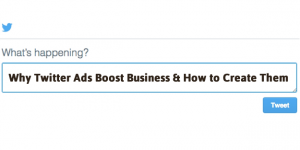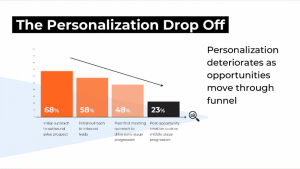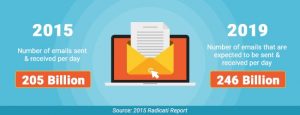With consumers increasingly expecting personalized marketing messages, columnist Jeff Hirsch predicts that brands’ success will depend on their strategies for data management and one-to-one engagements.

People don’t spend money as segments; they make purchase decisions as individuals. Marketers need to reach consumers at this individual level with strategies that focus on the personal interactions between the brand and its customers.
It’s not a small undertaking, and it’s quickly become a competitive necessity. Data-driven marketing is becoming the standard as consumers increasingly expect personalized communication.
Personalized engagement needs to be brands’ ultimate goal: strategies for managing data and striving for meaningful one-to-one engagements with customers will determine a brand’s success.
Use A Platform To Manage All That Data
Data in all its forms has quickly transformed into a type of marketing currency.
The information that drives campaigns needs to be as in-depth and actionable as possible to translate into engaging content. That starts with the information marketers already have stored about their customers. Customer relationship management (CRM) solutions, billing programs and Web analytics are only a few of the tools marketers use to house detailed customer data.
Integrating the information from these sources into one place can be a challenge — and that’s where a good data management platform (DMP) comes in. DMPs aggregate information from disparate sources and create a single repository, making them ideal for data-driven campaigns. When consumer data is housed in one place, it’s easier for marketers to understand the ways to activate that data to drive business goals.
Additionally, DMPs become even more valuable to marketing strategy when marketers aggregate second- and third-party data. Marketers can glean more insights from data to make content even more relevant to their customers.
Because customer, prospect and market data is now centralized in one place, brands can use this data repository to ensure that customers receive the most relevant content to encourage them to act at the right moment in the customer lifecycle.
The demand for personalized content to compel conversions is only going to grow. Marketers need to act swiftly and implement ways to maximize their use of data. Better organization with DMPs is a critical first step.
Partnerships Should Be Made With Data In Mind
As a DMP’s place in marketing becomes more firmly established, there’s greater opportunity to identify partners and other technologies that make data even more robust.
Those partners include any platform that enables content placement on the Web. They should be sharing their own information in a manner that can be integrated into DMPs and put into action in different strategies and campaigns. Any partner that doesn’t offer the kind of information that deepens customer profiles and makes for more relevant content needs to come with some other benefit, or it’s not of much value.
Identifying these partners before pursuing relationships can help marketers understand which ones will best suit their needs, helping them to build the deepest customer engagement and generate substantial ROI.
Data Leading To Personalization
For marketers, the concept of personalization once seemed like a pipe dream. Marketers have settled on one-to-many targeting ratios, segmenting everyone into specific groups based on any number of factors. In a way, this is still a part of marketing.
However, consumers have options now, and they’re not afraid to explore those options to identify the best way to spend their money.
The internet is responsible for most of this altered paradigm. Thankfully, the Web has also provided channels for direct, one-to-one communication with prospects. The videos people watch on YouTube, the websites they read for leisure or for work and the apps they download on their smartphones all provide clues for which products or services are most likely to appeal to them.
Web content — whether it’s video, email, social or another format — must be selected and delivered to consumers with personalized customer information in mind. Receiving irrelevant content is the kind of thing that can turn consumers off.
When people follow a brand on a social platform or register to receive email marketing, they’re giving a brand license to market to them. Moreover, they usually hand over information that points to their exact wants and needs. Personalizing content, by leveraging this and other data consumers provide, demonstrates a brand’s commitment to winning customers’ business by helping them.
With so many choices available, brands that distinguish themselves with tailored marketing content are most likely to build loyalty with consumers and drive repeat purchases.
Some opinions expressed in this article may be those of a guest author and not necessarily Marketing Land. Staff authors are listed here.
(Some images used under license from Shutterstock.com.)
Marketing Land – Internet Marketing News, Strategies & Tips
(104)
Report Post







